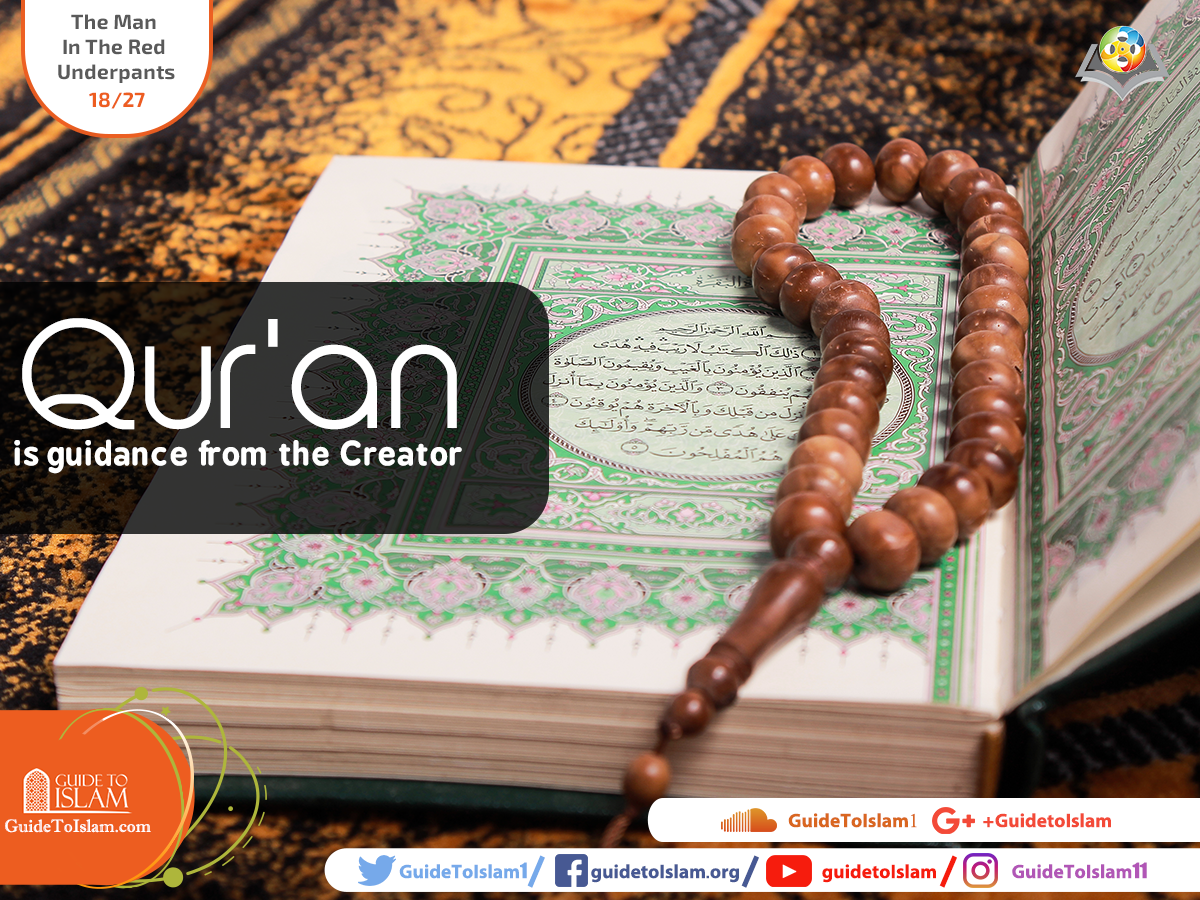Quran is guidance from the Creator

Now, this may be time to swallow the bitterest pill of all so far. Time to accept what for some of us might be the hardest truth; that the Quran just might possibly be that guidance from the Creator, and that Mohammed is a Prophet. At least we should put our prejudice aside and try to openly examine the reasoned arguments put forth in favour of the Quran’s claim to be that guidance. After all, it does already have a few things in favour of this claim. Let’s go over them again. Firstly, what it teaches about the Creator matches what can be understood rationally by everyone everywhere, i.e. that there is One Creator that is unlike the creation. There are lots of verses in the Quran that expound this idea. For example:
“Say: He is God, the One and Alone, God the one whom everything needs and who Himself needs nothing, He is not born, nor does He beget, and there is nothing that can be compared to Him.” [The Quran; Chapter 112 – The Purity, verses 1-4]
Some people question the use of ‘He’ in the Quran. Does this mean that the Creator is a man? The Creator, according to these verses, is not like anything. It’s just that in Arabic, the original language of the Quran, like many other languages, there is only male and female, no neuter. Even in English, saying ‘it’ doesn’t really seem an appropriate way to talk about God. ‘He’ just happens to be the gender term that is used in the Quran, but it does not imply or necessitate that God is a man or male.
The second thing in Islam’s favour is that the scripture has been preserved in a remarkable manner. The history of this preservation is itself worthy of some study, but for brevity I’ll just relate some comments of various scholars on this matter, for example:
The orientalist Richard Burton writes that the Qur’an we have today is ‘the text which has come down to us in the form in which it was organized and approved by the Prophet….What we have today in our hands is the mushaf [text] of Muhammad.’ Kenneth Cragg describes the transmission of the Qur’an from the time of revelation to today as occurring in ‘an unbroken living sequence of devotion.’ Schwally writes in Geschichte des Qorans that ‘As far as the various pieces of revelation are concerned, we may be confident that their text has been generally transmitted exactly as it was found in the Prophet’s legacy. ’They certainly seem convinced of the Quran’s authenticity.
The third reason we should sit up and take notice is because the message of Islam claims to be a universal one, that is, for everybody regardless of race or status, and indeed makes clear that the Creator does not look at a person’s colour, race, tribe, wealth or status, but rather at a person’s heart, goodness and deeds.

